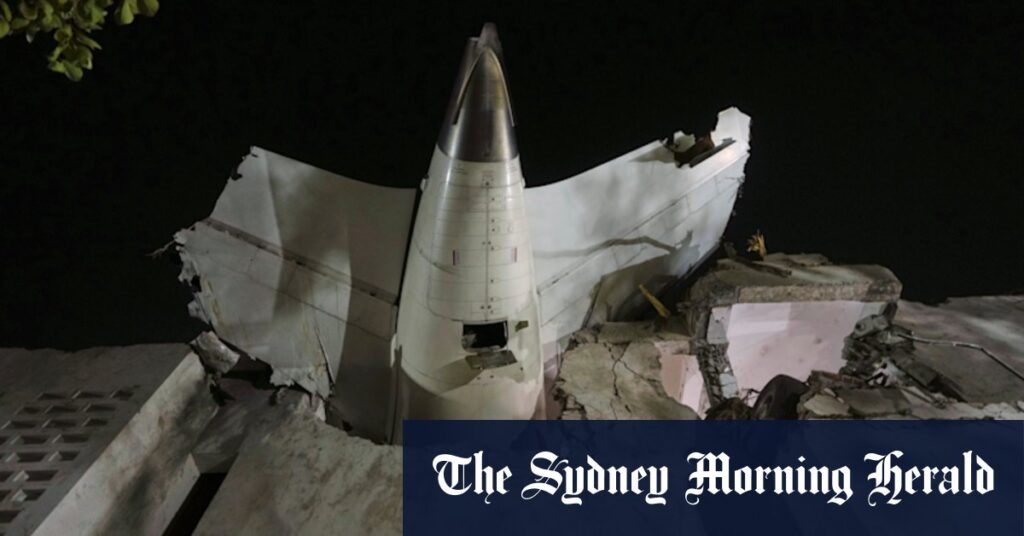
The tragic crash of Air India flight 171, which occurred seconds after take-off from Ahmedabad on June 12, has prompted airlines worldwide to examine the safety of fuel switches. The Aircraft Accident Investigation Bureau (AAIB) released a report on Friday, highlighting potential issues with the fuel control switch locking feature. The crash claimed the lives of all but one of the 242 passengers and crew, along with 19 people on the ground.
Conjecture regarding the pilot’s mental health has been criticized by the Indian Pilots Guild, which demands a thorough, fact-driven investigation. The AAIB report noted a 2018 airworthiness bulletin from the US Federal Aviation Administration (FAA) about the potential disengagement of the fuel control switch locking feature. However, the FAA did not deem it an unsafe condition requiring an airworthiness directive.
Investigations and Industry Reactions
The throttle control module of the Air India 787 Dreamliner was replaced in 2019 and 2023, but the AAIB stated that these replacements were not linked to the fuel control switch. Since 2023, no defects have been reported with the fuel control switch. An Australian aviation maintenance expert suggested that a “faulty locking feature of the fuel cut off switches” might be responsible, citing a history of wear that could lead to accidental engine shutdown.
Honeywell, the manufacturer of the switches, refrained from commenting on speculation, directing queries to the investigating agencies. Boeing has also been contacted for comment. According to International Civil Aviation Organisation rules, the country where the incident occurred is responsible for the investigation. The Boeing Dreamliner has maintained a strong safety record, but the findings of this investigation are under close scrutiny, especially after the Boeing 737 Max crashes in 2018 and 2019.
Expert Opinions and Analysis
Dr. Geoffrey Dell, head of aviation safety for the AMDA Foundation, emphasized the need for a comprehensive investigation, noting that the preliminary AAIB report lacked data. He stated, “Without any other facts, it’s difficult to draw reasonable or even partial conclusions.” Dell, an experienced crash investigator, argued that it is unlikely the switches alone caused the crash, as they require deliberate action to move.
“The report indicates that the pilot monitoring may not have been aware that the shutdown had occurred, pointing to a significant lapse in crew resource management and situational awareness.” — Salim Hijazeen, Swinburne University
Swinburne University’s Salim Hijazeen pointed out that while the switch design and past FAA advisories are significant, they are unlikely the sole cause. He suggested a convergence of factors, including human performance limitations, potential aircraft system issues, and procedural breakdowns, might have contributed to the crash.
Implications for Aviation Safety
The Air India crash has reignited discussions about aviation safety and the reliability of aircraft systems. The incident underscores the importance of rigorous safety protocols and the need for continuous monitoring of aircraft components. Airlines and manufacturers are urged to collaborate closely to ensure the highest safety standards are maintained.
Dr. Dell highlighted the importance of understanding how systemic errors can lead to catastrophic outcomes. He remarked, “Saying pilot error was the cause of the crash is like saying the accident was caused by gravity. It’s true but not very bloody helpful.” The focus, he argued, should be on identifying and rectifying design flaws and human systems that allow such errors to occur.
As the investigation continues, the aviation industry is poised to learn valuable lessons that could prevent future tragedies. The findings may lead to new safety directives and improvements in aircraft design and crew training, ensuring a safer future for air travel.
For those affected by the tragedy, support services are available. The Lifeline number for crisis support is 13 11 14.







